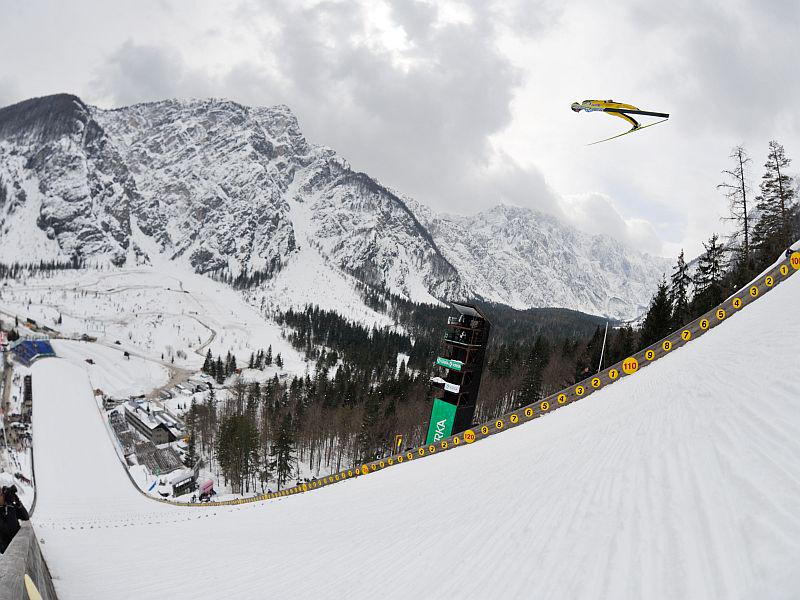
Janez Polda never won any medals during his ski jumping career but was still one of the most popular personalities in the history of Slovenian sport.
Born in the picturesque mountain village of Mojstrana in 1924, Polda was a simple shepherd boy. However, his grade school teacher, Minca Rabič, saw potential in him. A former athlete -- she had been the national champion in cross-country skiing --, Rabič encouraged the young Polda to pursue a career in ski jumping.
Under Rabič’s mentorship, Polda turned out to be a talented ski jumper. In 1948, he almost set a world record at Planica, the famous Slovenian ski jump. He jumped a distance of 120 meters, farther than anyone had ever jumped before, but his jump was declared invalid because he let his hands touch the snow on landing. However, other jumps made Polda the Yugoslav national champion.
Polda competed at 1948, the 1952, and the 1956 Olympics, but his best result at any Olympic competition was 16th place at the 1952 Oslo games. Despite his unquestionable talents, he never won any medals – neither at the Olympics nor at World Championships. He set a number of Yugoslav records, but was never one of the world’s leading ski jumpers.
But despite failing to achieve international prominence, Polda was a legend in Slovenia. More than any other ski jumper before or since, he was synonymous with the sport of ski jumping. Spectators would travel to Planica to “see Polda jump.”
On reason for his popularity was the length of his career. But his personality also played a major role.
Despite his fame, Polda remained down-to-earth and had a strong bond with ordinary people. In large part, that was because he also saw himself as an ordinary person. He famously insisted that he was jumping primarily for the Slovenian nation. His selflessness and commitment helped to make him a mythic figure, the personification of Slovenian sporting achievement and an icon unlike any other athlete of his generation.
Throughout his ski jumping career, he continued to hunt – and made a living from his catch. Avoiding the trappings of stardom, he was determined to be just himself. He even jumped his own way, with arms extended backwards, which cost him points with the judges. Years later, his style became widely accepted in ski jumping.
After the end of his ski jumping career, Polda suffered from severe bout of depression. A national hero as a ski jumper, he felt unappreciated and forgotten once he stopped competing. He had competed for the nation, but the nation ended up abandoning him. Lonely and depressed, Polda committed suicide on March 20, 1964. He was just 39 years old.
True recognition of Polda’s achievements came after his death. Posthumously, he received a number of Slovenian and Yugoslav ski jumping prizes, and was inducted into the Slovenian Sports Hall of Fame. A ski jumping competition was named after him, and a street in his native Mojstrana now bears his name. A half a century after his death, he has finally achieved immortality as a Slovenian national hero.

































































